The real estate industry is growing rapidly with the rise in the global population, and so too is the need for proper housing. This means that building block sellers and cost-conscious home building companies can invest in brick making machines to add a great competitive edge to their businesses.
Brick making machine technology helps businesses produce bricks faster, and at a lower cost. As a result, there are numerous models of brick makers available, and choosing the right one may seem overwhelming. This guide aims to provide easy steps to help companies source the best brick making machines for their needs.
Table of Contents
The market projection for brick making machines
Factors to consider when choosing a brick making machine
Types of brick making machines
The market projection for brick making machines
The global market size for automatic brick making machines is expected to reach multi-million dollars by 2028. The report suggests that the increased demand for improved, efficient, economical, and eco-friendly construction equipment is a major driver for brick making machines.
Other factors propelling this global brick market include the rise in the global population, and the fact that construction companies also want to reduce logistic costs for bricks. They invest in brick making machines to allow them to manufacture bricks on-site rather than incur costs for transporting the bricks.
Factors to consider when choosing a brick making machine
The construction industry is served by a number of brick making machine manufacturers, all of whom compete to appeal to businesses with their products. That said, before choosing a particular brand or machine, it’s important to consider several factors, which are outlined below:
Price
The price is probably the first thing to consider when investing in a brick making machine. Companies should determine how much they are willing to spend on a brick making machine, and to do so the budget for any machine investment should align with their current revenue, business plan, and customer base in order to determine what is or is not feasible.
Service warranties
A brick making machine requires substantial investment, and warranties guarantee that this investment will be protected. Manufacturers that offer warranties on their products assure the purchasing company that the machine is built with quality materials and is long-lasting. On the other hand, it is not advisable to buy a brick making machine with a short or no warranty.
Scale of operation
The purchasing company should evaluate its needs for the bricks before investing in the machine. For instance, if the project is small-scale, such as constructing a simple house, the company could buy a relatively small brick maker. However, if the company is handling a huge project that requires many bricks, investing in a large-scale brick making machine would be far more efficient and worth the overheads.
Brick style
There are different types of bricks, including fly ash bricks, hollow bricks, interlocking bricks, concrete bricks, solid bricks, and cement bricks. These diverse bricks are produced using different brick making machines.
The purchasing company should ascertain if the machine it intends to invest in can produce the appropriate bricks for its projects. It can ask the dealers about the machine’s capabilities to avoid any future disappointment.
Quality of the machine
The quality of the brick making machine is determined by the materials it is made from. The purchasing company should ensure the machine they are buying is manufactured with high-quality materials that are able to stand the test of time.
Some parts of brick making machines worth checking are the pump, hydraulic cylinder, and the valve since they are likely to affect its proper functioning. The company should also consider a brick making machine with carbonated forming molds because they are efficient and have a longer service life.
Material type and size
The type of brick making machine a company chooses is also dictated by the material they intend to use in making bricks. Machines for making clay bricks may not be suitable for cement concrete. Different machines also make different sizes of bricks which means they should be selected depending on the project’s needs.
Level of autonomy
Fully automated brick making machines are controlled by PLC control systems, meaning they do not need human intervention. They are easy to operate and have higher production capacity than semi-automatic and manual machines. Nevertheless, they are more expensive than manual and semi-automated machines.
Ease of maintenance
Serviceability is a feature some companies fail to consider before purchasing a machine. However, routine maintenance is a must for all brick making machines to ensure longevity and efficiency. As a result, in order to save on expenses down the road, the purchasing company should consider the availability of the machine’s spare parts and ease of maintenance.
Machine productivity
The productivity of brick making machines varies from one machine to another, depending on their specifications and features. Every brick manufacturer should therefore examine their daily production needs to select a machine that can meet them.
Types of brick making machines
Brick-making machines can be classified into several categories depending on their specification, mode of operations, and type of concrete they produce. When the company knows the type of machine its projects need, they’ll be much better placed to make the right decision when purchasing a brick making machine.
Automatic brick making machines
Automatic brick making machines utilize control conversion technology, keeping a parallel and precise movement of its mold and tamper, thus preventing deformation. These machines work for 24 hours, producing high-quality paver blocks and bricks without the need for manual labor.
They are controlled by a PLC system, making them easy to operate and maintain. Most brick manufacturers love them for their efficiency, durability, and cost-effectiveness. They are used in construction sites when making interlocking bricks, color pavers, solid paving blocks, and concrete blocks.
Fully automated brick making machines come with electric control panels and hydraulic cylinders for easy operations. They are popularly used in road development and industrial brick making.
Pros
- Easy operation due to its inverter control stacker system
- High level of automation
- Low energy consumption
- High thermal treatment
Cons
- Relatively pricey
Semi-automatic brick making machine
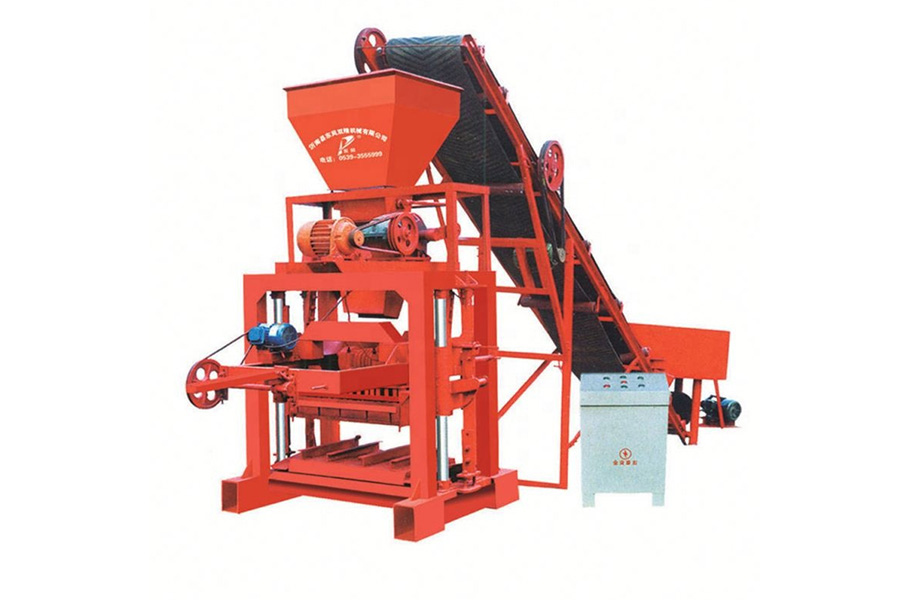
Semi-automatic brick making machines run partly automatic but need human intervention to operate the control systems. They are suitable for small projects requiring high production in a single and double-hopper.
They are designed to run for 24 hours but with different production capabilities. The smallest semi-automatic brick making machine produces 4,000 standard pieces, while the largest can produce 10,000 pieces within an eight-hour shift. They are designed to meet various project needs, such as solid blocks, hollow bricks, and special-shape brick products.
Pros
- High output quality
- Efficient hydraulic system
- Energy efficient
- Low running cost
Cons
- Lower production capacity than a fully automated machine
- Needs human labor
Manual brick making machine
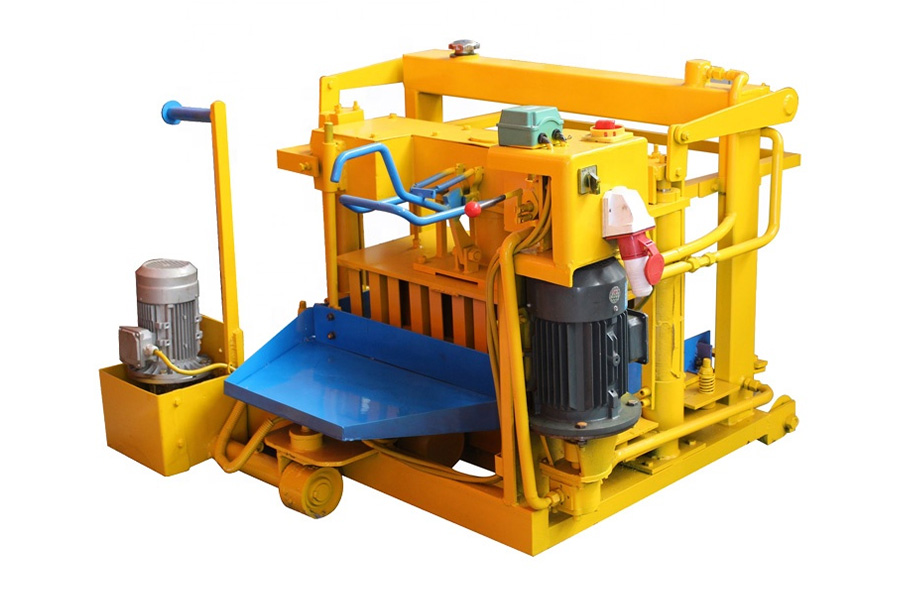
Manual brick making machines require the operator to feed the raw materials manually to the mold, stir, and then the mold vibrates to create bricks. They are small and have simple designs that are easy to operate. Newcomers in the brick making industry can take advantage of the machine’s low cost to get a feel for the industry before upgrading to automatic machines.
Manual brick making machines can make hollow bricks, solid bricks, and special shaped bricks. Depending on the available materials, one could choose to invest in a manual fly ash brick making machine, a manual cement brick making machine, or a manual hydraulic brick making machine.
Pros
- Simpler to operate
- Convenient to maintain
- Cheaper price
Cons
- Low output
- High physical exertion
- Low efficiency
Hydraulic brick making machine
Hydraulic brick making machines are fully automated machines furnished with hydraulic stations. They have mold variation coupled with hydraulic pressure to be able to mold bricks efficiently in a short time period.
Hydraulic brick making machines with a large tonnage press can be vibration-free, offering static pressure molding. This machine is suitable for those with brick making experience who want to expand their operations and output. They are also suitable for companies making colored pavement tiles, as the secondary feeding color system in the pavement coloring requires hydraulic power.
This brick making machine molds bricks quickly using high pressure to produce large output. Nevertheless, it requires a significant budget to buy and set up.
Pros
- Highly efficient
- Fully automatic control
- High production output
Cons
- Expensive
- Relatively complicated maintenance
Concrete block making machine
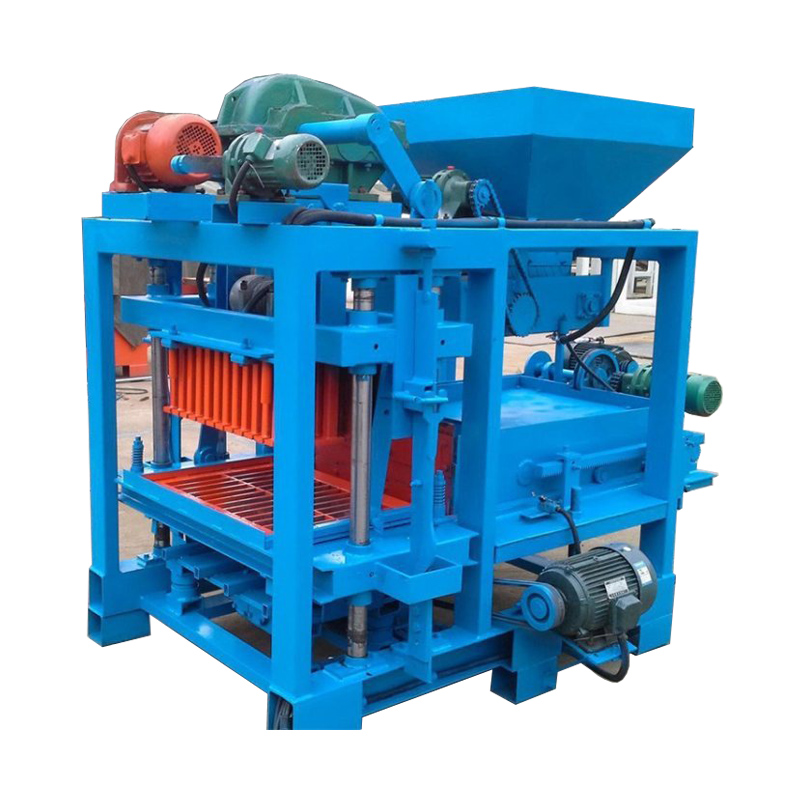
A concrete brick making machine molds its blocks using concrete as raw material. A fully automated machine has a concrete mixer that mixes the raw material with water and then conveys the mix to the mold to make concrete bricks.The raw materials for building concrete bricks include sand, cement, cinder, pebbles, and fly ash, amongst others. The machine can also be semi-automatic or manual. The brick manufacturing company can use the machine to make hollow concrete bricks, concrete paver blocks, and interlocking bricks of different sizes.
Pros
Wide range of bricks, ranging from manual to automatic
- The machine can make bricks of different sizes without changing molds
- It is environmentally friendly
- The bricks are strong and suitable for unique construction needs
- Raw materials are readily available
Cons
- It only operates with concrete
Autoclaved aerated concrete (AAC) machine
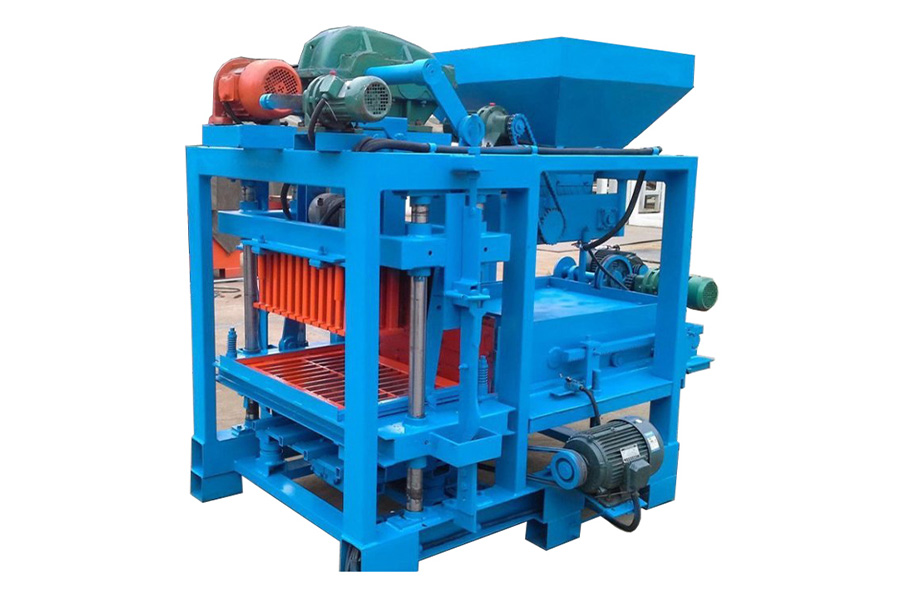
Autoclave aerated concrete machines to make lightweight or foam-like building materials. The machines produce blocks, roof panels, wall panels, floor panels, and more.
The process for producing autoclave concrete takes several steps, including:
Milling- Where raw materials such as lime, fly ash, gypsum, OPC cement, and aluminum powder are ground to ensure smooth and quality production of building blocks.
Demolding- Once the mix from milling is ready, they are rolled on tracks for demolding. When the slurry is fed into molds, the foaming and hardening start to achieve the required strength for the next step.
Cutting– This process is often categorized into tilt or flat cake, depending on how the mix is molded and sent to the cutting line. The tilt cutting is faster and is preferred by many people.
Curving: After the blocks are cut into desired shapes and sizes, they are transferred into autoclaves for curving. Autoclaves use steam to secure the blocks and achieve adequate strength for prolonged usage.
AAC machines can produce solid bricks, U-shaped bricks, concrete blocks, and hollow blocks, making them suitable for customer needs.
Pros
- It is lightweight, and easy to install and handle
- It has advanced thermal efficiency, which means reduced heating
- It has excellent sound insulation because of the air voids in the aerated concrete
- Uses recyclable materials
- The AAC bricks are produced in various forms and sizes
- The AAC material is termite and fire-resistant
Cons
- The end product may show inconsistent color and quality
- It is challenging to install in high humidity environments since the exterior finish requires high vapor permeability while the interior requires low permeability
- It costs more than the conventional concrete block-making machines
Conclusion
As the demand for modern, eco-friendly, economical, and improved construction equipment continues to rise, investing in a brick making machine could be a great idea. However, since it requires a large investment, it is important to ensure that the desired machine meets one’s needs before selecting a model. One’s brick production scale, level of automation, budget, and brick style determine which brick making machine one should ultimately choose. This guide has therefore highlighted some of the key points to consider, so that businesses can confidently choose the right machine.

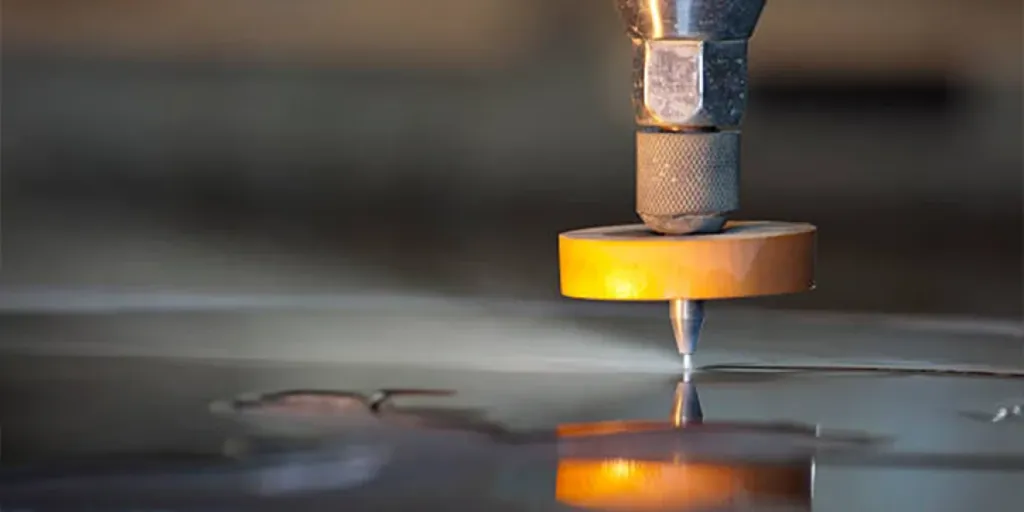
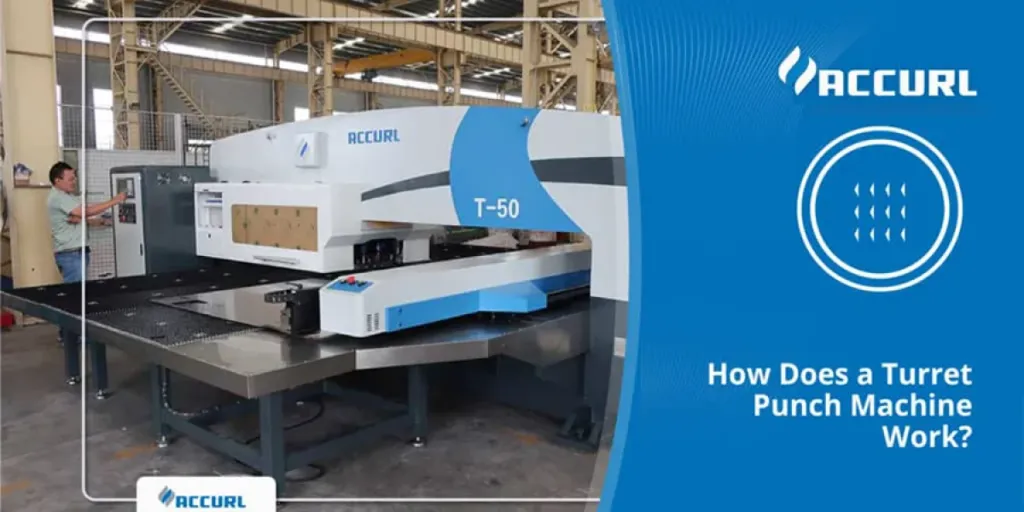
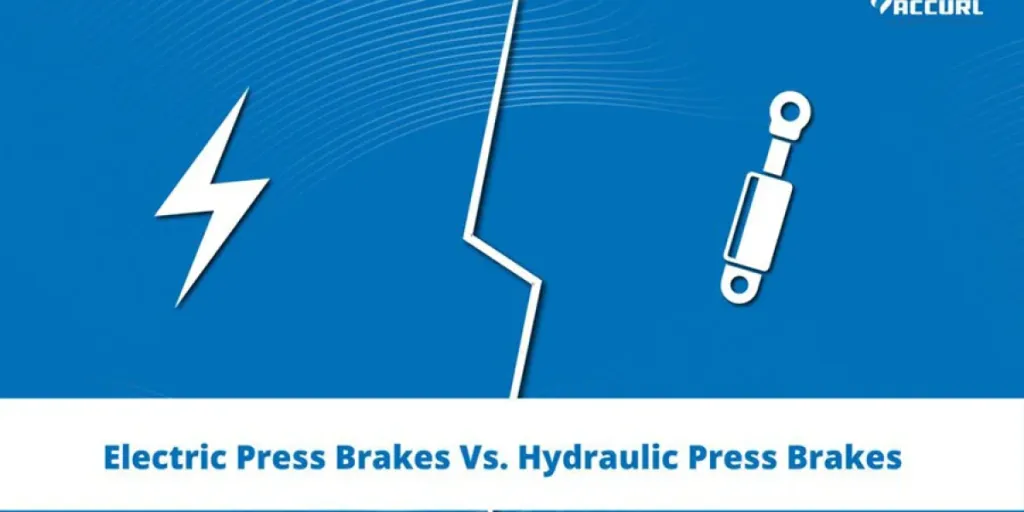
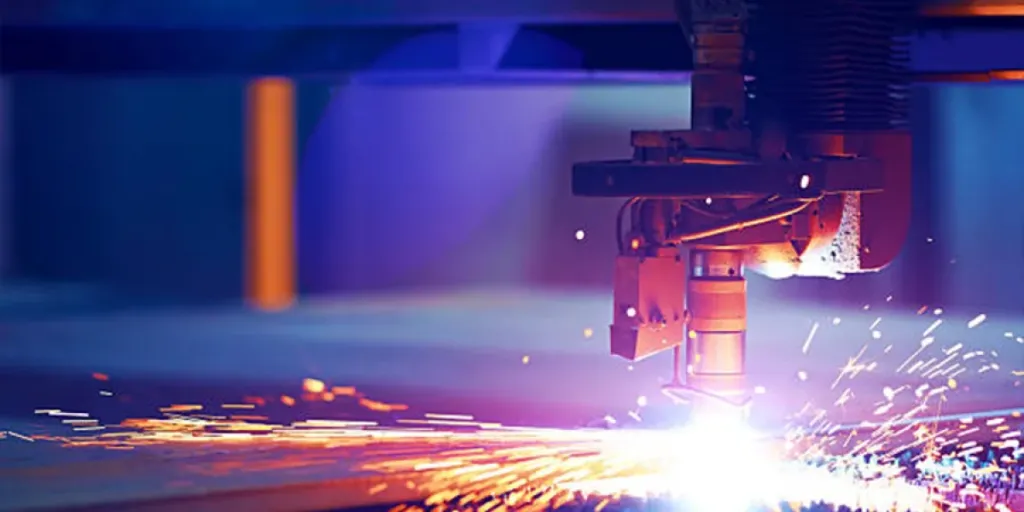
 বাংলা
বাংলা Nederlands
Nederlands English
English Français
Français Deutsch
Deutsch हिन्दी
हिन्दी Bahasa Indonesia
Bahasa Indonesia Italiano
Italiano 日本語
日本語 한국어
한국어 Bahasa Melayu
Bahasa Melayu മലയാളം
മലയാളം پښتو
پښتو فارسی
فارسی Polski
Polski Português
Português Русский
Русский Español
Español Kiswahili
Kiswahili ไทย
ไทย Türkçe
Türkçe اردو
اردو Tiếng Việt
Tiếng Việt isiXhosa
isiXhosa Zulu
Zulu